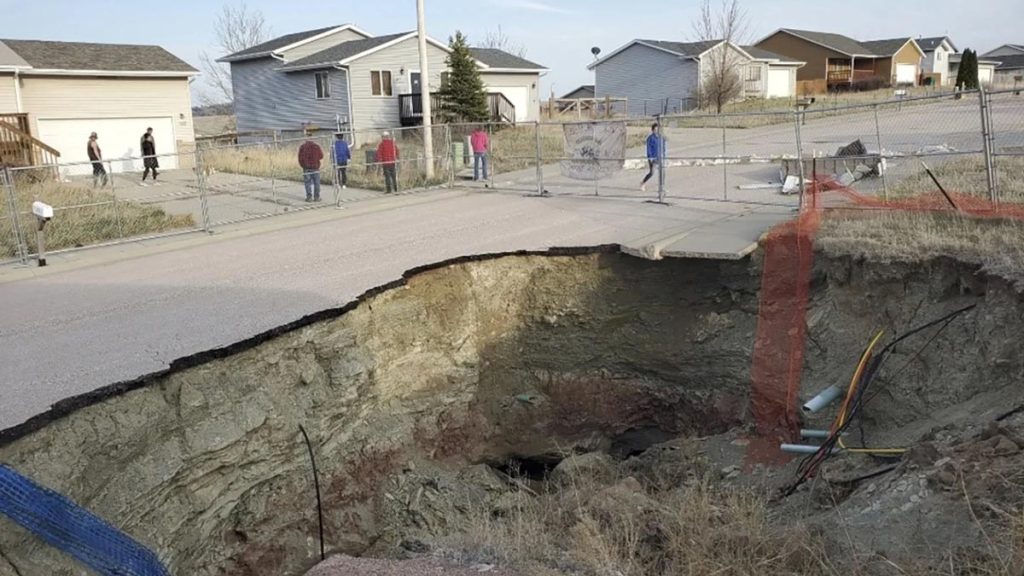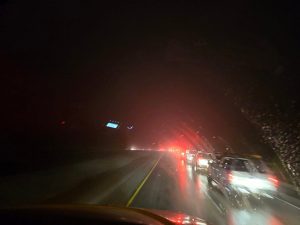RAPID CITY, S.D. – A lawsuit filed by a group of Black Hawk homeowners whose properties were damaged by a massive sinkhole is set for oral arguments before the South Dakota Supreme Court in October, a case with significant implications for sovereign immunity and inverse condemnation claims in the state.
The case, Morse, et al v. State, et al, is scheduled as the first oral argument on Wednesday, Oct. 8, 2025, during the Supreme Court’s Traveling Term of Court at the University of South Dakota Knudson School of Law in Vermillion.
The appeal stems from a class-action lawsuit brought by Andrew Morse and other residents of the Hideaway Hills community in Black Hawk, near Rapid City, after a nearly 30-foot-deep sinkhole opened in 2020, revealing the neighborhood was built atop an old, underground gypsum mine. Thirteen homes were evacuated, and about 150 residents have reported issues like cracking and settling.
The residents sued the State of South Dakota, among other parties, seeking compensatory and consequential damages. The core of the claim is that the state, through its former subdivision, the South Dakota Cement Plant, was responsible for the instability. The Cement Plant purchased the property in 1985 and allegedly failed to properly reclaim the land after surface mining activities, ultimately leading to the surface and subsurface instability.
Morse’s central argument is an inverse condemnation claim, asserting that the state “took or damaged his property for public use without just compensation” by failing to provide adequate subsurface support, which he maintains is a violation of the South Dakota Constitution.
A circuit court granted summary judgment to the state, dismissing the matter by reasoning that the homeowners’ claim “sounded in tort” and was thus precluded by sovereign immunity, which protects the state as a sovereign entity from certain lawsuits. Morse is appealing this dismissal, challenging whether the circuit court erred in granting summary judgment based on sovereign immunity and whether a viable inverse condemnation claim exists.
The traveling term will feature a total of eight oral arguments over two days, starting at 9 a.m. CDT each morning. The public is invited to attend the sessions to observe the judicial process. The South Dakota Supreme Court is the state’s highest court and the final decision maker on South Dakota law.
Here is the South Dakota Traveling Term of Court Booklet for October of 2025. Included are courtroom protocol for the public and case information.





